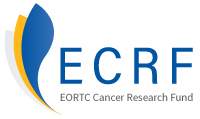MISSION
EORTC has been involved in a number of large practice-changing clinical trials in the field of Soft Tissue and Bone Sarcoma, leading to the registration of drugs to treat sarcomas including gastrointestinal stromal tumors (GIST).
PRACTICE CHANGING RESEARCH
Study coordinator: Prof. Jaap Werweij
Knowing that ALK and MET abnormalities were involved in some very uncommon cancers, the researchers decided to investigate the effect of crizotinib on six tumour types. The rarity of these cancers can be seen in the fact that fewer than 200 patients in total took part in the trial. Results so far are promising. For example, in inflammatory myofibroblastic tumours, which occur in smooth muscle and connective tissue cells, researchers have found that the tumours respond well to crizotinib treatment. The latest results show that up to around 70% of patients have a positive response to treatment, and these data have been used to support an application to the US Food and Drug Administration for the authorisation of the use of crizotinib in children with inflammatory myofibroblastic tumours.
CREATE has been valuable in encouraging the creation of working groups on the ultra-rare tumours being studied and stimulating radiologists as well as medical oncologists to work on them. Patients
in the trial have also benefited from their treatment; many are still on crizotinib even though it is not yet on the market in some countries or in those where it is, it is not approved for the tumour type being studied. Additionally, the long-term follow-up of the trial will give researchers the chance to better understand the natural course of these rare diseases, and this will aid in the planning of future research.
Study coordinator: Prof. Patrick Schoeffski
LATEST PUBLICATIONS
Want to read in detail our scientific findings on specific tumour type?
Search through our comprehensive list of EORTC published articles to date.
WOULD YOU LIKE TO STAY UP TO DATE WITH OUR NEWS?
NEWSLETTER

Sign up today and start receiving EORTC’s research updates, inspiring stories and much more.


